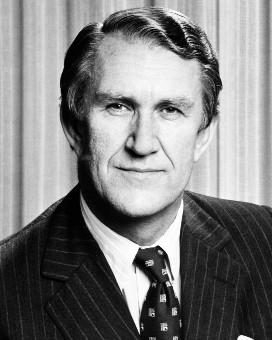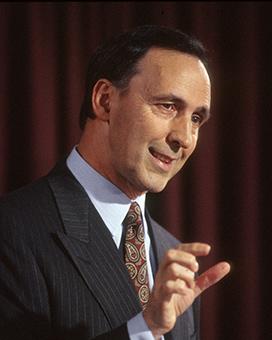On 20 February 1992, 2 months after losing his position as Prime Minister, Robert James Lee (Bob) Hawke resigned from his House of Representatives seat. He became a successful businessperson, dealing in the property market and as a consultant for overseas negotiations. Hawke also maintained a high public profile, interviewing international political figures for the Channel 9 television network and writing for newspapers.
He published The Hawke Memoirs in 1994. In 1995, he and Hazel Hawke were divorced. Hawke married Blanche d’Alpuget, the author of his 1982 biography and of the 2008 book on his years as prime minister.
Hawke remained in demand as a public speaker. Public issues in which he had been involved included the movement towards an Australian republic. He campaigned publicly for a referendum on a republic, held unsuccessfully in 1999.
In 1997, the University of South Australia established a Bob Hawke Prime Ministerial Centre, a Hawke Research Institute and a Bob Hawke Prime Ministerial Library on the university’s City West campus. Hawke was active in the events and development of these bodies.
In 2002, Hawke and former Labor Premier of New South Wales, Neville Wran, led a review looking into reform of the Labor Party. The review was initiated by Simon Crean, leader of the federal parliamentary Labor Party. In 2007, aged 78, Hawke was active in the campaign for the election of the Labor government under Kevin Rudd.
With Gough Whitlam, Malcolm Fraser and Paul Keating, Hawke returned to the House of Representatives in February 2008 to be part of the Apology to Australia’s Indigenous Peoples.
Hawke, until his death on 16 May 2019, remained an occasional commentator on Labor Party matters and on federal politics.
Sources
- Blewett, Neal, ‘Robert James Lee Hawke’, in Michelle Grattan (ed.), Australian Prime Ministers, New Holland, Sydney, 2000.
- Hawke, Bob, The Hawke Memoirs, William Heinemann Australia, Melbourne, 1994.





